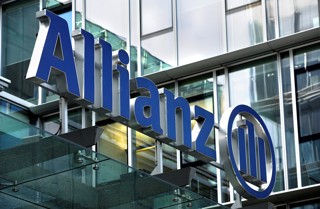A new driver profiling tool, designed to help company car drivers make the transition to an electric vehicle, has been developed by Fleet Logistics.
Part of the tool involves a decision tree that helps the driver to define their priorities in choosing a new car with a series of questions to consider in making the right choice.
These cover the need for business travel, business miles being driven, the types of journeys - a commute, private or job-related journey - accessibility to charge points at the office or at home, feasibility to use the public network and whether their journeys are possible on a single charge or whether recharging is required.
Based on the answers given, the new tool guides the driver to the optimal vehicle choice, be that electric, plug-in electric or, in certain cases, traditional internal combustion engines (ICE).
The new decision tree has been imbedded into Fleet Logistics’ car configurator tool, FleetWizard, which provides details of all the available options under a company’s corporate fleet policy, including clear, up-front information on financial components like specific driver contributions or deductions and any budgetary constraints.
Sue Branston (pictured), country head of Fleet Logistics UK and Ireland, said: “Selecting the correct vehicles for your fleet is a paramount in the success of any EV change or pilot programme.
“Firstly, part of the review is to discuss with your chosen vehicle manufacturers the opportunity to test their products in real world scenarios.
“A review may be required to consider manufacturers outside of your current policy with a view to assess their suitability and sustainability versus the need in the new normal.
“This can be done by benchmarking or an RFP (request for proposal) to determine available bonuses and any additional dealer discounts on top of the manufacturer discount percentage.
“It may also be relevant to review the acquisition method and maintenance approach for some fleet operators that have not considered this for a while,’’ said Branston.
Madelaine Webster, from Global Mobility Solutions at Fleet Logistics, added: “Each business will be at different stage of their transition business plan and adoption must be at the correct pace for each specific use case.
“Many UK fleet operators are still unsure whether their organisation is ready to make the switch. However, as more businesses pledge to take action to reduce their emissions, and with cities across Europe focused on reducing congestion and air pollution, creating a roadmap to a greener fleet will become a future core requirement.
Webster says that some 50% of its clients have now introduced sustainability reporting as part of CSR initiatives and a further key reason to adopt electric vehicles is that the cost savings take multiple forms.
“Start small and scale up if you are unsure and track results as you roll out your fleet transition programme,” she said.
“Mileage reimbursement for electric vehicles is frequently asked about in the UK. There are service providers that can help with this, but the Advisory Electricity Rate (AER) of 4ppm does require review as it has remained at the same level since 2018.”
The Association of Fleet Professionals and BVRLA have joined forces to request that the Government review the AER rate and consider different engines sizes to mirror the approach to other fuel types. A separate rate has also been requested for vans.
“In the main, the perceived obstacles to electrification can be overcome,” she added. “Our specialists help businesses roadmap, review policy and procure vehicles at the right pace. If in doubt, ask experts for help, as it is the time to start the process.”
























Login to comment
Comments
No comments have been made yet.